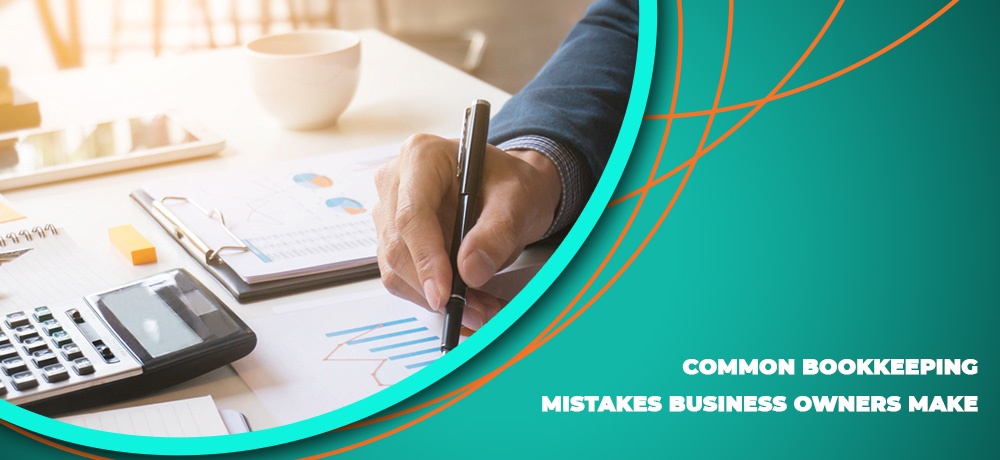Common Bookkeeping Mistakes Business Owners Make

If you’re a business owner, chances are you wear a lot of hats. You’re the CEO, the marketing director, the sales manager, and the human resources department all rolled into one. With so much on your plate, it’s easy to let some things fall through the cracks. Unfortunately, one of the things that often gets neglected is bookkeeping.
While it may not be the most exciting task, keeping track of your finances is crucial to the success of your business. Without accurate financial records, it’s impossible to make sound business decisions. Not to mention, you could end up facing some serious penalties if the CRA audits you and finds that your records are a mess.
To save you the headache, the experts at Essina Business Financial Services have compiled a list of the most common bookkeeping mistakes most business owners make. Keep reading to know.
1. Not paying yourself properly
When you’re a business owner, it’s tempting to just take money out of the business whenever you need it. However, this can be dangerous if you don’t leave enough money in the business to cover future expenses, like paying taxes.
Solution: It’s important to figure out how much you can afford to pay yourself each month based on what the business can handle. Set up a regular payment schedule and stick to it.
Tip: It can be helpful to set a personal budget for yourself, so you don’t have to rely on business funds. Talk to your accountant about the best way to pay yourself, whether through a salary or dividends. The way you’re paid will impact not only your business but also your personal income tax situation. For example, it can affect whether you qualify for government programs, how much you can borrow, and how much you’ll contribute to your Canada Pension Plan.
2. Mixing business with personal expenses
Many new business owners are unable to get a business credit card, so they use their personal cards for all their spending. But when you mix business with personal expenses, it leads to extra hours of bookkeeping, sorting out what is what. The end result is inaccurate transactions, discrepancies, and headaches.
Solution: If you can’t get a business credit card, use a personal one strictly for business. Mark it so it’s easy to identify at the checkout. Have business bank accounts for your daily activities. This will help you avoid extra hours of bookkeeping sorting out what is what.
3. Losing receipts
Bills and receipts are not only required in a CRA audit, but they also give you valuable insights into your business. You can understand your business spending trends and patterns, which you wouldn’t be able to see otherwise. Saving receipts also saves you money. Many businesses can claim the taxes they pay for their business expenses.
Solution: Use a receipt management app such as Hubdoc or Dext. Take thirty seconds after purchasing to capture your receipt and get it to your bookkeeper immediately. Sync it with your accounting software.
4. Out-of-date bookkeeping
Many business owners wear many hats and are often stretched thin. The last thing they want to do is work on their books, which can become a problem if they miss important deadlines and end up paying large fines and interest. Customer invoices are not always sent out immediately, resulting in delayed payments. Without valuable business insight, business owners may make costly decisions.
Solution: Outsourcing your bookkeeping doesn’t need to be costly and can actually save you time and money.
5. Hiring an inexperienced bookkeeper
It can be tempting for business owners to try to save money by doing their own bookkeeping. However, this can often be more time-consuming than it is worth. In addition, unless the person doing the bookkeeping is skilled in this area, it can lead to inaccurate records. This can end up costing the business more money in the long run when they need to hire a professional to clean up their bookkeeping records.
Solution: There are many outsourced bookkeepers who offer lower-priced packages for small businesses. These bookkeepers can help keep records up to date and accurate and give business owners the insights they need to grow their businesses.
Avoid these common mistakes, and you’ll be on your way to better bookkeeping and a healthy business!
To avoid these and other mistakes, reach out to the experts at Essina Business Financial Services. We specialize in helping small businesses keep their books organized and up-to-date. With our expertise in business finance, as well as our technical skills, we can help you stay on top of all your accounting and financial needs.
We serve clients across Alberta, including Edmonton, Sherwood Park, Spruce Grove, Leduc, and Camrose.
Get in touch with us today!
To learn more about the services we offer, please click here. To get in touch with us, please click here or call us at (780) 217-7834, or email us at info@essina.ca.